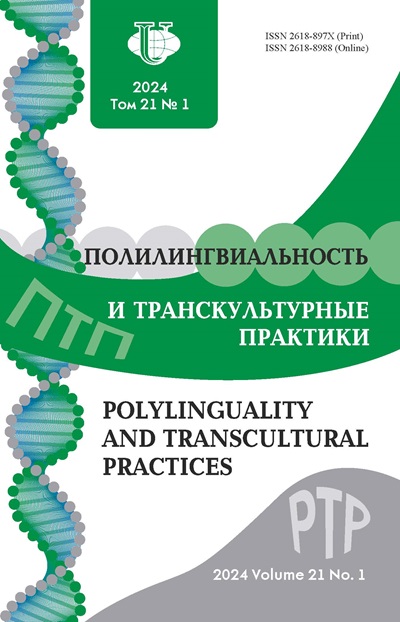Issue
Title
Authors
|
Kobylko J. |
|
Eiassu S.T., Lapteva M.D. |
|
Fayzrakhmanova Y.S. |
|
Shishlova E.E., Tvanba L.R. |
|
Mikhienko A., Oshchepkova E.S., Kovyazina M.S. |
|
Nagumanova E.F., Shemshurenko O.V. |
|
Borisova L.V., Ivanova A.M., Chuyeva E.V. |
|
Nimaeva E.Z. |
|
Imambek N.K. |
|
Bitokova M.V., Kankulova A.S. |
|
Razumovskaya V.A. |
|
Barannikova T.B., Suleimanova F.N. |
|
Anikina M.N. |
|
Grinberg S.A. |
|
Kuznetsov M.Y. |
|
Nikolaev E.R. |
|
Mosina N.M. |
|
Vasilyeva N.M. |
|
Bashieva S.K., Dokhova Z.R., Shogenova M.C. |
|
Afanasieva N.D., Zakharchenko S.S., Mogileva I.B. |
|
Khilkhanova E.V., Khilkhanov D.L. |
|
Bereznyatskaya M.A., Denisenko A.V., Kalinina J.M. |
|
Alexandrova N.S. |
|
Lu S., Polyakova E.V. |
|
Lavitski A.A. |
|
Afanasieva N.D., Zakharchenko S.S., Mogileva I.B. |
|
Balasanyan L.G., Moskovkin L.V. |
|
Nuradilov S.S. |
|
Grankina L.A. |
|
Zaitseva I.P. |
|
Kovaleva A.V. |
|
Antonov Y.G., Kabanova J.V. |
|
Medvedeva N.V. |
|
Sotova I.A., Parfenova E.L. |
|
Ballod J.O. |
|
Wenqian Zang -. |
|
Sharonov A.M., Sharonova E.A. |
|
Anikina M.N. |
|
Lavitski A.A. |
|
Bereznyatskaya M.A. |
|
Tchemodanova S.V. |
|
Lichačiova A.B. |
|
Deikina A.D., Levushkina O.N. |
|
Adu S.S., Adu Y.N. |
|
Dzhusupov M. |
|
Ivshin L.M. |
|
Balasanyan L.G. |
|
Ketenchiev M.B., Akhmatova M.A., Dodueva A.T. |
|
Dzhusupov M. |
|
Sinyachkina N.L. |
|
Urkhanova R.A. |
|
Gavrilov A.D. |
|
Vladimirova T.E. |
|
Atabieva L.K. |
|
Valuitseva I.I., Filatov I.I. |
|
Shontukova I.V. |
|
Moskvitcheva S.A. |
|
Kucaeva M.V. |
|
Shabalina L.N. |
|
Shcherbakova O.M. |
|
Alexandrova N.S. |
|
Gilemshin F.F. |
|
Lugovskaya E.G. |
|
Mamontov A.S., Stolyarova A.G. |
|
Ismailova H.E., Arsenieva I.A. |
|
Ivshin L.M. |
|
Akkalieva A.F., Amalbekova M.B. |
|
Popova M.V. |
|
Mazhitayeva S., Akhmetova A., Zhunusova A., Azhigenova S. |
|
Vladimirova T.E. |
|
Belyaeva A.P., Moskovkin L.V., Tskhovrebov A.S. |
|
Protassova E.Y. |
|
Vasil’eva A.A. |
|
Sergieva N.S. |
|
Sinyachkin V.P., Sinyachkina N.L. |
|
Pugachev I.A., Budiltseva M.B., Varlamova I.Y. |
|
Isabekova U.K. |
|
Afanasieva N.D., Zakharchenko S.S., Mogileva I.B. |
|
Akimova I.I. |
|
Borisova A.A. |
|
Dronov V.V., Trjapel’nikov A.V. |
|
Tupeyko D.V., Baghana J. |
|
Budiltseva M.B., Novikova N.S. |
|
Nizkoshapkina O.V. |
|
Bobrova S.E. |
|
Langner A.N., Baghana J. |
|
Novikova A.K. |
|
Poplavskaya T.V., Choumanskaya O.A. |
|
Kutsaeva M.V. |
|
Rostova E.G. |
|
Fierman W. |
|
Wenqian Zang -. |
|
Nedosugova A.B. |
|
Li Chuan -. |
|
Nedosugova A.B. |
|
Elnikova S.I. |
|
Shustikova T.V., Kulakova V.A., Smirnova S.V. |
|
Smagulova J. |
|
Todorova I.D. |
|
Bakhshiyeva F.S. |











